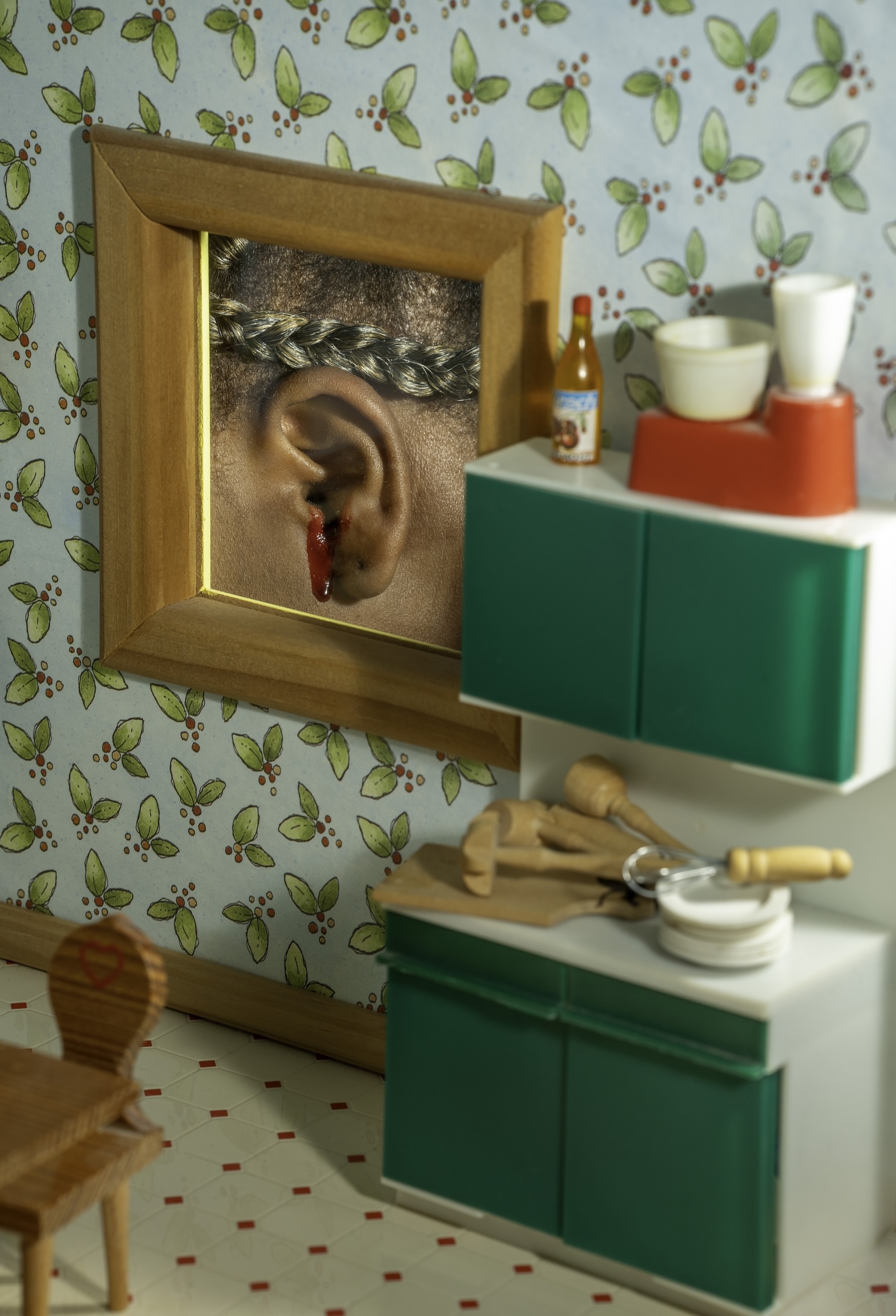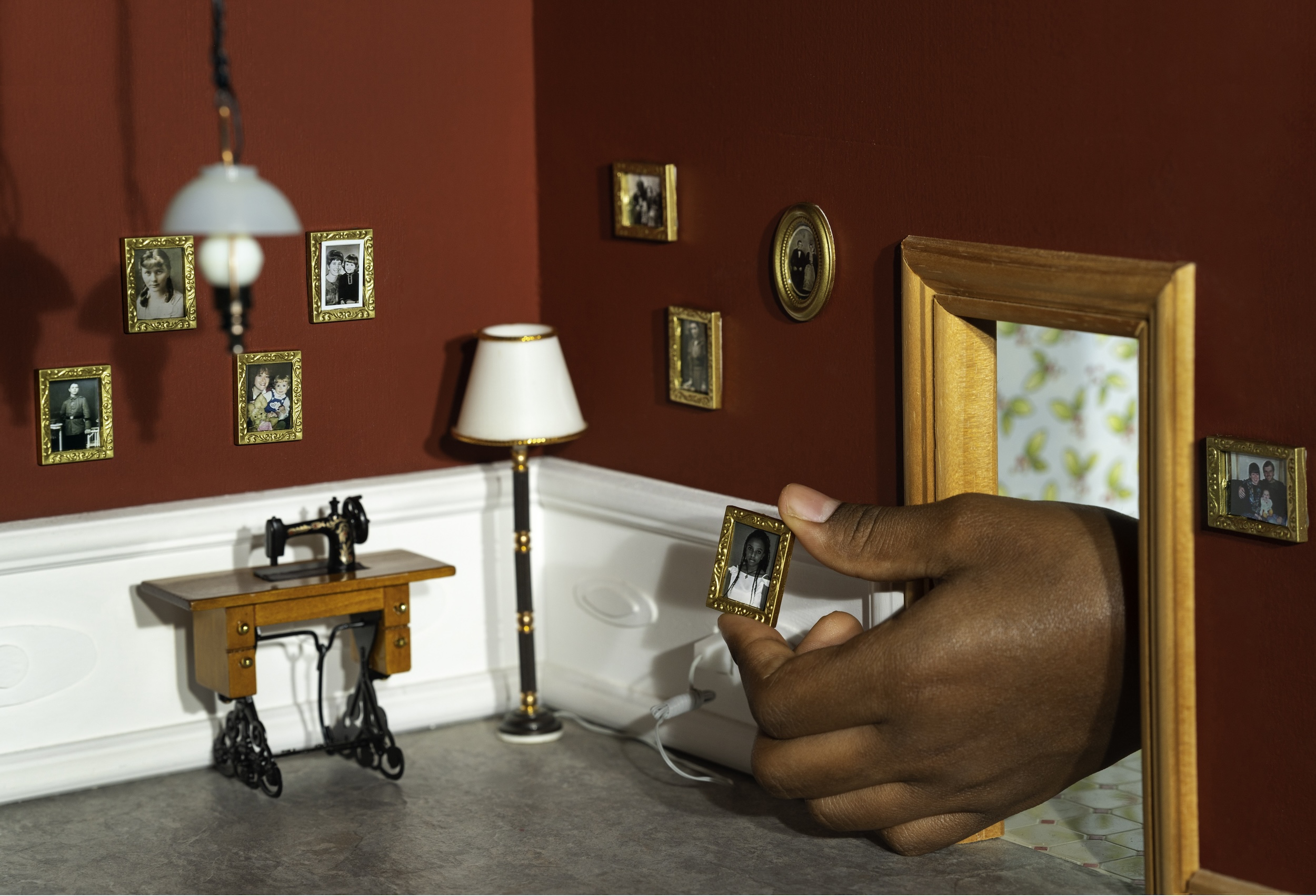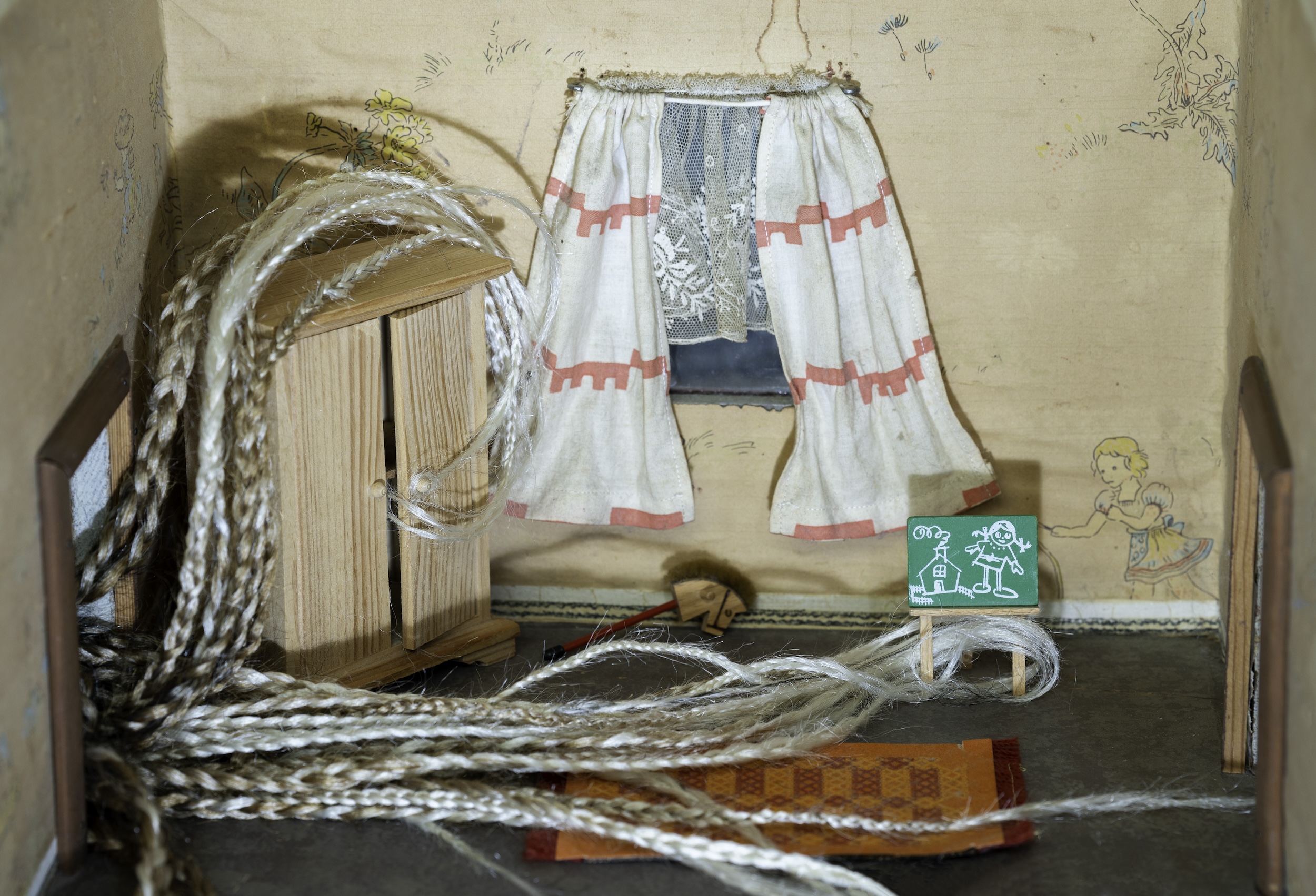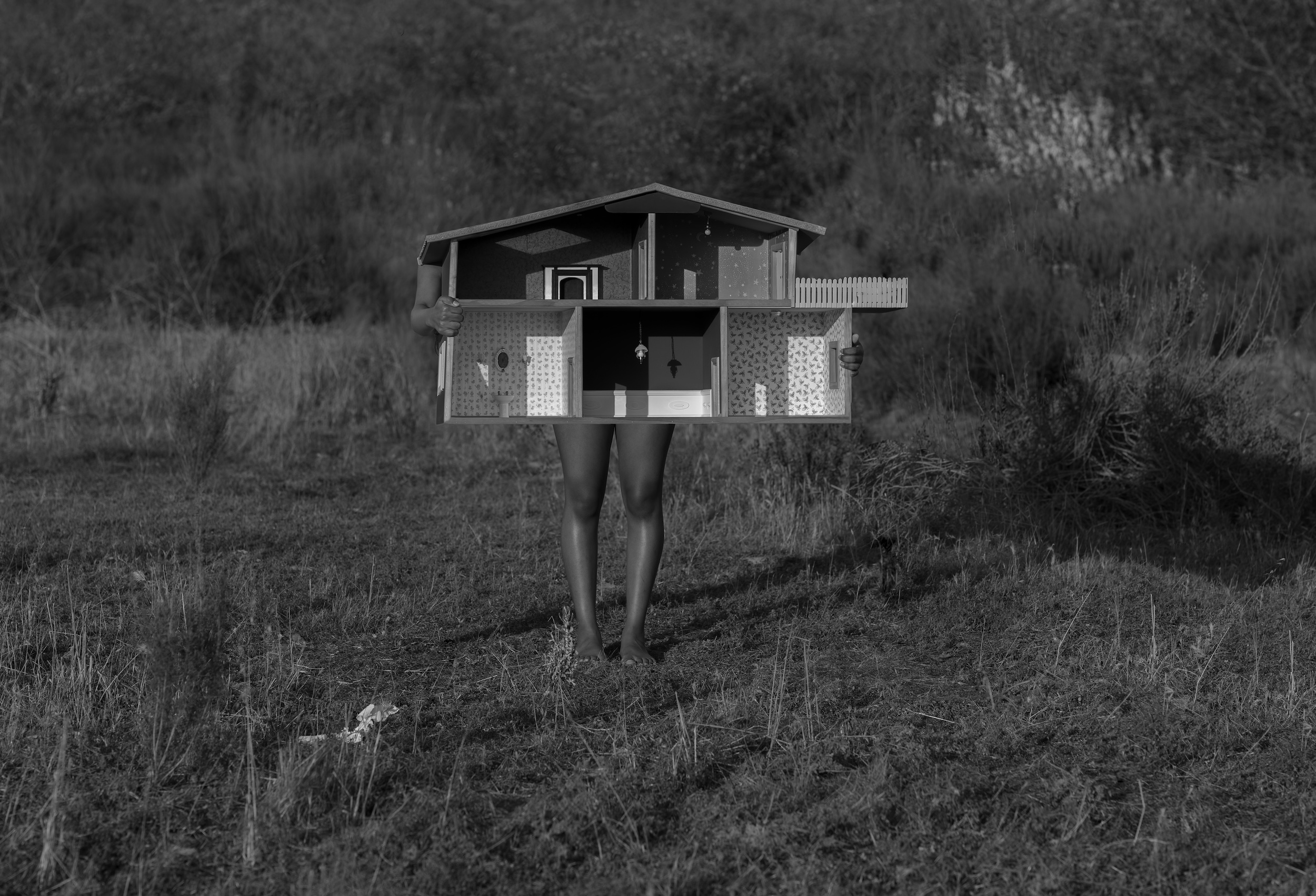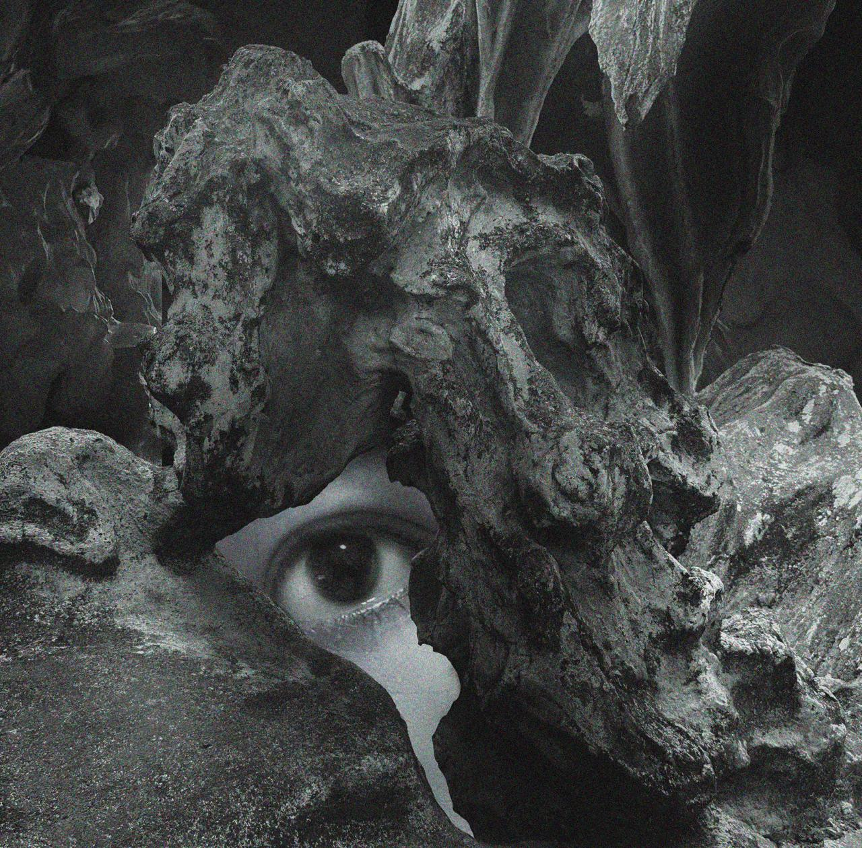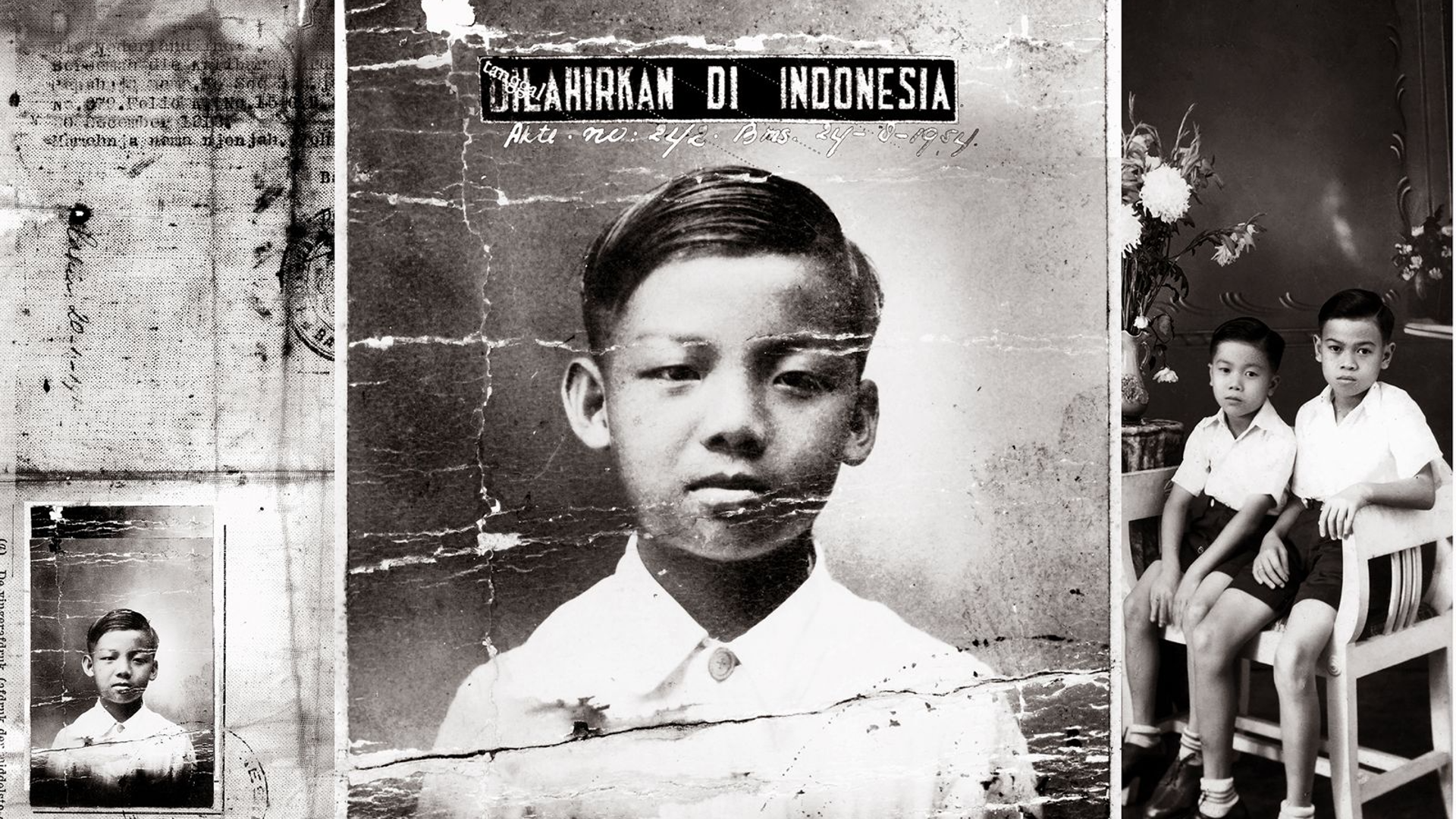I have been photographing my younger sister Masantu for over ten years. I started taking it seriously when she expressed to me her disappointment over not having photographs of herself as a baby, from before our family adopted her. Our projects are photo-therapy, because the act of photographing builds her self-confidence, untangles her identity as a young black girl in our German-American family, and battles any insecurities she, like many adolescents, has about her appearance.
“Unsere Puppenstube (Our Dollhouse)” deals with the adverse and borderline racist reactions my parents received from our extended family in Germany when she was first adopted and her need to remember what little knowledge she has about her biological family.
Here she peers into a dollhouse first constructed by our great grandparents, continued by our grandparents, and finished by our father. My sister and I furnished the dollhouse together with items that have been passed down through our family, including a clock handmade by our great-grandmother. This symbolises the legitimacy of her claim to our family’s generational memory, despite objections from ignorant relatives. In fact, my great-grandmother, who never had the chance to meet my sister, also adopted a child orphaned during World War II.
How my sister interacts with the dollhouse mimics occurrences of situational feelings of outsideness. An example of which being when my mother and I converse in Schwäbisch, the dialect of German that we speak, around her.
This work felt important to make because my relationship with my sister is often thrown into question, especially by strangers in public, who try to decode how we fit together. Photography allows me to express the responsibility I feel to emotionally support my sister through challenges she may face as a result of growing up in a white family, as the United States continues to be divided along racial lines. The audience for this work is anyone who has ever felt out of place although they belong.



